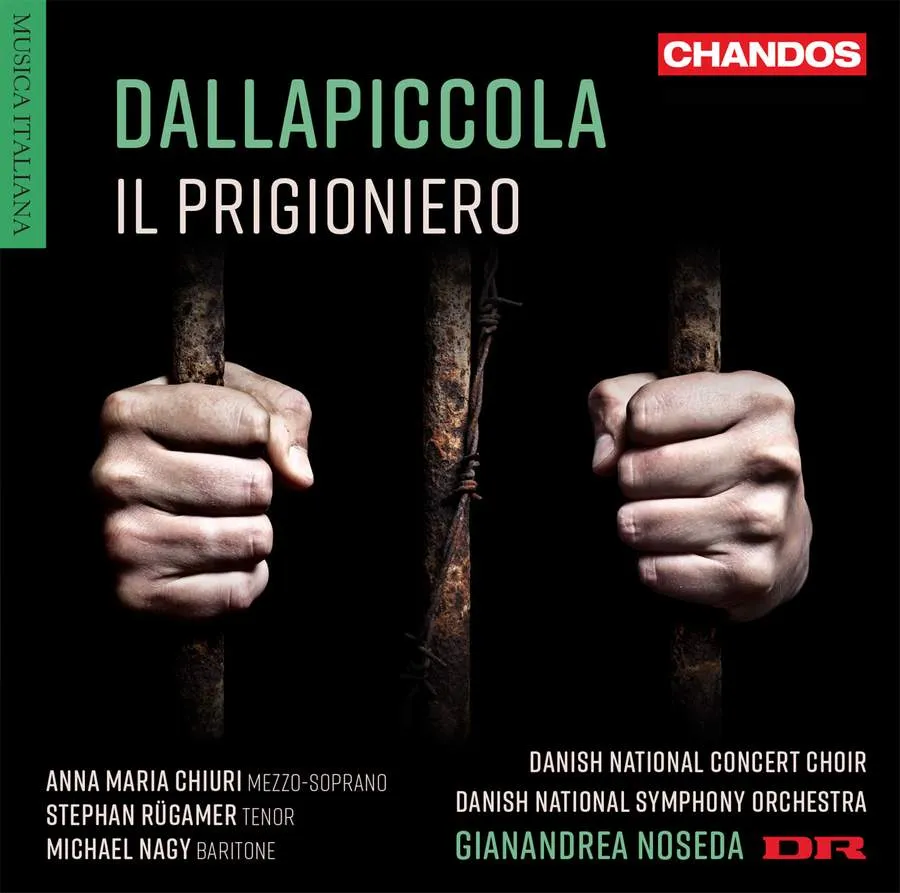
Dallapiccola Il prigioniero; Prima Serie Dei Cori di Michelangelo Buonarroti il Giovane Anna Maria Chiuri, Michael Nagy, Stephan Rügamer, Adam Riis, Steffen Bruun (voices); Danish National Concert Choir; Danish National Symphony Orchestra/Gianandrea Noseda Chandos CHSA 5276 55:46 mins
At the time Dallapiccola began work on Il Prigioniero in 1943, he and his Jewish wife were hiding out in the hills outside their home town of Florence and this one-act opera, with its subject of the suppression of liberty, was clearly written out of deep personal conviction. Dallapiccola’s own libretto was partly based on a story by the 19th-century French symbolist writer Villiers de l’Isle-Adam called ‘Torture by Hope’, in which a prisoner, having suffered every kind of torment, is falsely led to believe he can escape – only to realise that he has been ruthlessly subjected to the most terrible of all tortures: hope. This is an opera that makes an overwhelmingly powerful impression: even the construction of the music itself forms part of the drama, with its complex pattern of 12-note rows symbolising the labyrinth of subterranean passageways through which the prisoner stumbles.
Gianandrea Noseda and his Danish forces offer a thrilling account of Dallapiccola’s masterpiece, and Noseda’s attention to the all-important orchestral detail is meticulous. As the prisoner, Michael Nagy is alive to every nuance of the role. Stephan Rügamer’s caressing voice is ideal for the falsely sympathetic gaoler, too; and if Anna Maria Chiuri doesn’t quite have the warmth that Phyllis Bryn-Julson brought to the part on the fine Sony recording by Esa-Pekka Salonen, her dramatic intensity is admirable. While Salonen’s disc (now out of circulation) was supplemented with Dallapiccola’s Canti di Prigionia, one of which is quoted in the opera’s last scene, Noseda opts for two of the composer’s unclouded early a capella choral pieces as a welcome contrast. This is altogether a thrilling disc, splendidly recorded.
Misha Donat